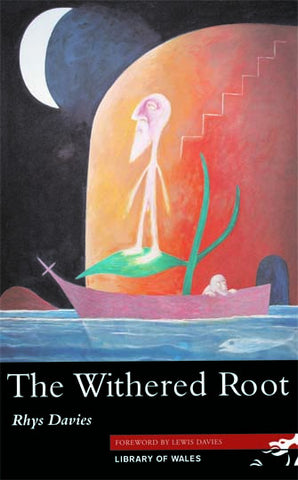"Rhys Davies's characters all walk straight out of the page and hold one with an almost physical attraction." - The Times
Synopsis:
The Withered Root recounts the troubled life of Reuben Daniels, reared in a South Wales industrial valley, in the bosom of the Nonconformist culture. Therein lies his downfall and that of his people, for The Withered Root is as thoroughly opposed to Welsh Nonconformity as My People(Caradoc Evans), though for different reasons. Revivalist passions constitute nothing but a perverse outlet for an all too human sexuality which chapel culture has otherwise repressed. Nonconformity has withered the root of natural sexual well-being in the Welsh, and then feeds off the twisted fruits.
About the author:
Rhys Davies (1901–1978) was one of the most prolific and unusual writers to emerge from the Welsh industrial valleys in the twentieth century. Born in Clydach Vale, a tributary valley of the Rhondda arising from Tonypandy, he was the fourth child of a small grocer and an uncertified schoolteacher. He spurned conventional education and left the valley, which was to be the basis of much of his work, at the age of nineteen, settling in London, which was to remain his base until he died.
Early in his literary career, he travelled to the south of France where he was befriended by D. H. Lawrence, who remained an influence in his writing. Though sex remained, for Davies, the primary determinant of human relations, he differed radically from Lawrence in that he saw the struggle for power rather than love, either sexual or emotional, as the crucial factor.
Though the bulk of his work was in the novel he achieved his greatest distinction in the field of the short story. Having few predecessors, Welsh or English, he drew his inspiration and models from continental European and Russian masters; Chekhov and Maupassant, Tolstoy and Flaubert. His view of humanity was Classical in that he saw people as being identically motivated whether in biblical Israel, Ancient Greece or the Rhondda valley. Much of his output was concerned with women, who would almost invariably emerge triumphant from any conflict.
He was a gay man at a time when it was difficult to live openly with his sexuality. He lived alone for most of his life and avoided relationships which seemed to betoken commitment on his part. His closest friendships were with women. He avoided literary coteries and groups, though he might have joined several, and held no discernible religious or political convictions. He lived, to an intense degree, for his art.
Short extract:
Hugh Daniels at last got married, and immediately after the ceremony in Pisgah Chapel, Martha and he settled down to life in the little cottage that was part of Martha’s legacy from her deceased father – a dwelling in one of those naked rows, chiefly occupied by colliers, that rise, shrouded in grey coal-dust, on the Valley hills.

